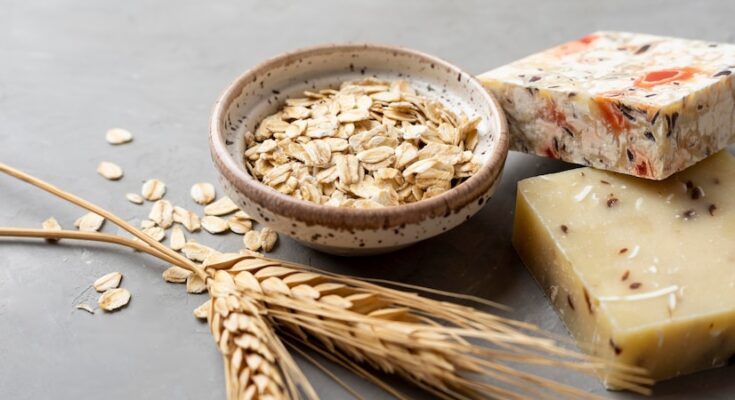Overview and Scope
The wheat protein are used for bread and noodle-making as it creates an elastic texture for achieving a high level of dough strength. Wheat protein isolate is a popular sports nutrition supplement among bodybuilders and strength-training athletes because of its high protein content, which may aid muscle building. In the cosmetic industry, it is also used as a supplement to enrich hairs in their hydrolyzed form.
Sizing and Forecast
The wheat protein market size has grown strongly in recent years. It will grow from $3.27 billion in 2023 to $3.48 billion in 2024 at a compound annual growth rate (CAGR) of 6.2%. The growth in the historic period can be attributed to traditional use in food and bakery products, high nutritional value and protein content, increased consumer demand for protein-enriched foods, growth in meat alternatives and vegetarian diets, expansion of food processing and bakery industry.
The wheat protein market size is expected to see strong growth in the next few years. It will grow to $4.66 billion in 2028 at a compound annual growth rate (CAGR) of 7.6%. The growth in the forecast period can be attributed to growing emphasis on clean label and natural ingredients, expansion of gluten-free and allergen-friendly product market, research and development for enhanced functional properties, focus on sustainable sourcing and production practices, increasing demand in emerging economies. Major trends in the forecast period include technological advancements in wheat protein extraction, gluten-free wheat protein alternatives, plant-based protein enrichment in snacks and convenience foods, textured wheat protein for meat alternatives, wheat protein in personal care and cosmetics.
To access more details regarding this report, visit the link:
https://www.thebusinessresearchcompany.com/report/wheat-protein-global-market-report
Segmentation & Regional Insights
The wheat protein market covered in this report is segmented –
1) By Product Type: Gluten, Protein Isolate, Textured Protein, Hydrolyzed Protein, Other Product Types
2) By Form: Dry, Liquid
3) By Nature: Organic, Conventional
4) By Application: Dairy, Bakery and Snacks, Animal Feed, Confectionary, Processed Meat, Nutritional Supplements, Other Applications
North America was the largest region in the wheat protein market in 2023. Asia-Pacific is expected to be the fastest-growing region in the wheat protein market report during the forecast period. The regions covered in the wheat protein market report include Asia-Pacific, Western Europe, Eastern Europe, North America, South America, Middle East and Africa.
Intrigued to explore the contents? Secure your hands-on sample copy of the report:
https://www.thebusinessresearchcompany.com/sample.aspx?id=6456&type=smp
Major Driver Impacting Market Growth
The increasing demand for substitutes for animal protein and dairy products is significantly contributing to the growth of the wheat protein market going forward. The popularity of vegan protein sources and the wide availability of vegan proteins in retail and food stores around the world make it an easy alternative for customers to choose plant-based proteins instead of animal-based, which has led to a shift of consumers from animal products to plant products. For instance, in 2021, according to the Health and Nutrition Survey (IFIC), conducted by the International Food Information Council, a US-based non-profit organization, around one-quarter of adults consume more plant-based food compared to animal-based food in 2020. Furthermore, For instance, according to Good Food Institute, a US-based non-profit organization to promote plant-based and cell-based alternatives to animal products, sales of plant-based foods increased three times more quickly than those of non-plant-based meals as compared to its previous years in the year 2021 in the US. Therefore, increasing demand for substitutes for animal-based proteins and dairy products is driving the growth of the wheat protein market.
Key Industry Players
Major companies operating in the wheat protein market include Archer Daniels Midland Company, Cargill Inc., Agrana Beteiligungs-AG, MGP Ingredients Inc., Roquette Freres SA, Glico Nutrition Co. Ltd., Tereos Starch & Sweeteners, Agridient Inc., Manildra Group, Crop Energies, Kröner-Stärke GmbH, Crespel & Deiters GmbH & Co. KG, AB Amilina, Xi’an Sheerherb Biotechnology Co., BASF SE, Kerry Inc., Permolex Ltd., Chamtor Ltd., Sedamyl SRL, Royal Ingredients Group, Meelunie B.V., Bryan W Nash & Sons Ltd., Aminola BV, Agridient Inc., The Scoular Company, Südzucker AG, Axiom Foods Inc., Batory Foods Inc., Emsland Group GmbH, Beneo-Remy N.V.
The wheat protein market report table of contents includes:
1. Executive Summary
2. Wheat Protein Market Characteristics
3. Wheat Protein Market Trends And Strategies
4. Wheat Protein Market – Macro Economic Scenario
5. Global Wheat Protein Market Size and Growth
…
31. Global Wheat Protein Market Competitive Benchmarking
32. Global Wheat Protein Market Competitive Dashboard
33. Key Mergers And Acquisitions In The Wheat Protein Market
34.Wheat Protein Market Future Outlook and Potential Analysis
35. Appendix
Contact Us:
The Business Research Company
Europe: +44 207 1930 708
Asia: +91 88972 63534
Americas: +1 315 623 0293
Email: [email protected]
Follow Us On:
LinkedIn: https://in.linkedin.com/company/the-business-research-company
Twitter: https://twitter.com/tbrc_info
Facebook: https://www.facebook.com/TheBusinessResearchCompany
YouTube: https://www.youtube.com/channel/UC24_fI0rV8cR5DxlCpgmyFQ
Blog: https://blog.tbrc.info/
Healthcare Blog: https://healthcareresearchreports.com/
Global Market Model: https://www.thebusinessresearchcompany.com/global-market-model




